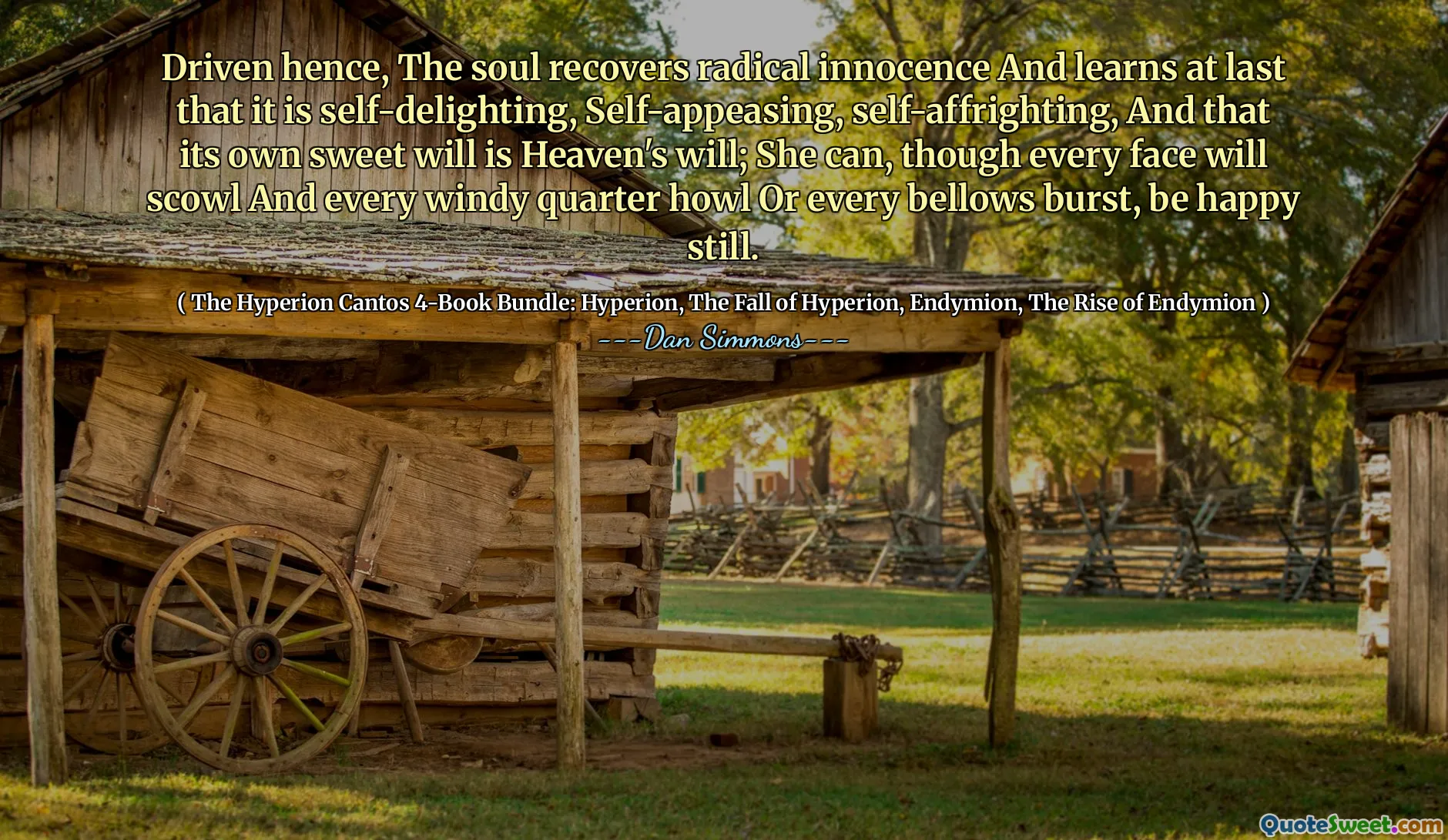
Driven hence, The soul recovers radical innocence And learns at last that it is self-delighting, Self-appeasing, self-affrighting, And that its own sweet will is Heaven's will; She can, though every face will scowl And every windy quarter howl Or every bellows burst, be happy still.
This passage explores the profound journey of self-discovery and inner peace. It suggests that true happiness and innocence are intrinsic qualities that lie within the soul, rather than being dependent on external circumstances. The phrase 'driven hence' implies a movement away from external influences or superficial pursuits, leading the soul to a state of radical innocence that is untainted and pure. The idea that the soul 'learns at last' highlights a process of enlightenment, realization, or awakening, where one understands that their own will — their desires and choices — align with divine or universal harmony, described here as 'Heaven's will.' When the soul recognizes that self-delighting, self-appeasing, and even self-affrighting are all internal dynamics, it becomes clear that happiness resides within, regardless of external chaos. The imagery of faces scowling or wind howling evokes worldly disturbances and chaos, yet the soul can remain unhindered and joyful. This reflects an empowering message: external adversity cannot genuinely disturb the inner serenity if one is anchored in self-awareness and acceptance. Such acceptance involves embracing one's inherent nature and will, acknowledging both its power and limitations. The emphasis on inner alignment with a higher purpose or divine will fosters resilience. It encourages cultivating peace within oneself, understanding that external turmoil is transient, and genuine contentment is a self-generated state. Ultimately, the quote promotes a path of internal enlightenment and self-trust that leads to authentic happiness, untouched by external upheavals.






